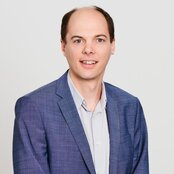
Book one of our international English-speaking scientists!

Scientists from all over the world conduct research at Austrian institutions. Their topics range from renewable energies and drug addiction to ticks and virology. They are available for individual school visits to give pupils insights into their research and to engage in dialogue. What's special: The school visit takes place IN ENGLISH - an ideal opportunity for young people to practice the language and learn more about the field of science.
Science ambassadors
The following science ambassadors are available for an individual school visit in English. The visit is prepared in advance by the class with a list of questions so that the researchers can respond to the specific interests of the pupils.
- Bio-inspired, small, and robust deep vision systems are a research focus of Zahra Babaiee (Vienna University of Technology), who works on artificial intelligence in general.
Regions: Vienna as well as online for all schools
- The research of Univ.-Prof. Esther Blanco (University of Innsbruck), Deputy Director of the research area “Economics, Politics & Society”, addresses the influence of institutions on cooperative behavior in fostering greener, fairer, knowledge-based societies.
Regions: Tyrol as well as online for all schools
- Dr. Elisa Carlon (Bioenergy 2020+ GmbH Graz) conducts research and development projects on energy efficiency and renewable energy supply in residential buildings, with a special focus on biomass heating devices such as logwood and pellet boilers and stoves.
Region: Vienna
- "From the whole to the parts, magic squares and shadows of infinity" – this and much more interests the (theoretical) physicist Assoc. Prof. Gemma De les Coves (University of Innsbruck). She works on topics such as mathematical physics, but also metaphysics.
Regions: Tyrol as well as online for all schools
- Dr. Rana El Rawas (Medical University of Innsbruck) investigates the neurobiological mechanisms underlying drug addiction, focusing on behavioral neuroscience.
Regions: Tyrol as well as online for all schools
- Univ.-Prof. Laura Kovacs (Vienna University of Technology) specialises in mathematics and theoretical computer science and works on the development of methods and tools to ensure error-free software systems.
Regions: Vienna as well as online for all schools
- Dr. Edward Lee (Complexity Science Hub Vienna) researches the physics of collective groups in biological and social systems through inventing mathematical equations inspired by physics. This allows him to explain how groups of components interact, e.g. neurons in the brain or societies fighting in war.
Regions: Vienna as well as online for all schools
- Restoring vision in blindness – that is the goal of Dr. Ahmad Salti’s laboratory (Johannes Kepler University Linz). To this end, he is developing a new type of retinal implant made from organic materials and uses 3D retinal organoids derived from stem cells as human models to understand retinal dystrophies.
Regions: Upper Austria, Tyrol as well as online for all schools
- How does a cold virus work? What happens in my nose? Prof. Tim Skern (Medical University of Vienna) works in the field of virology, studying the molecular biology of viruses to develop antiviral therapies.
Regions: Burgenland, Lower Austria, Vienna
- Prof. Daniela Weiskopf (La Jolla Institute for Immunology, USA) explores immunology, with a focus on understanding immune responses to viral infections.
Regions: Tyrol as well as online for all schools
- Using molecular biology and microbiology tools, Michiel Wijnveld, PhD (Medical University of Vienna) investigates ticks and tick-borne pathogens.
Region: Vienna
- Joel Wong, BSc (Hons) (Medical University of Vienna) studies immunometabolism and circadian biology, with a focus on the impact of the circadian cycle in cachexia, a multifactorial syndrome resulting in sustained body weight loss and organ wasting.
Regions: Vienna as well as online for all schools
Procedure and registration
- Please let us know your request using the form:
1. Registration for an individual visit
2. Registration for a themed workshop - We will put you in touch with the researchers, inform you if they accept and then help with further organisation if required.
- You make all further arrangements individually with the researcher and prepare the school class for the visit
- After the visit, we look forward to receiving a short report on the visit at youngscience@oead.at.
The researchers mentioned above are just a selection of the more than 470 people who visit schools as science ambassadors and also offer more than 180 different workshops.
Further information on the Science Ambassadors initiative (in German)
Overview of the profiles of all science ambassadors
